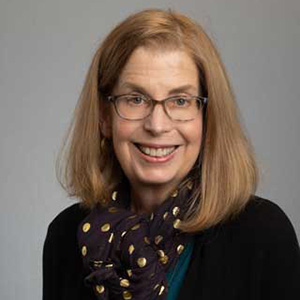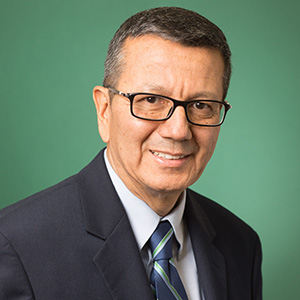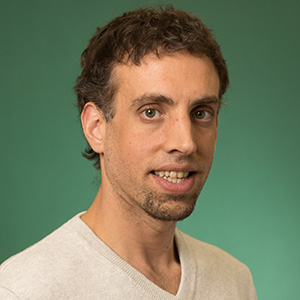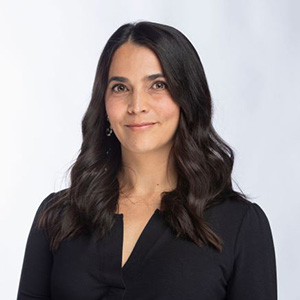Why Study Psychiatric Rehabilitation at SHP?
Career opportunities exist in a variety of psychiatric rehabilitation and community mental health settings such as case managers, residential counselors, employment specialists and wellness specialists.
These career outcomes highlight the diverse opportunities available to our graduates to make a positive impact on the lives of individuals living with serious mental health conditions and contribute to the field of mental health services and advocacy.

Program Highlights
Our B.S. in Psychiatric Rehabilitation program is the only one of its kind in the country. The program prepares students to gain the knowledge and skills needed to obtain employment in mental health settings upon graduation and to take the national credentialing exam to become Certified Psychiatric Rehabilitation Practitioners (CPRP).
Fast Facts:
 Convenience of both in-person and on-line courses
Convenience of both in-person and on-line courses
A complete psychiatric rehabilitation career ladder from B.S. through Ph.D. degrees
Elective courses that prepare students to work with special populations
Graduates have a 100% pass rate on the CPRP exam

Learning Beyond the Classroom
Through our clinical practicum, students gain over 480 hours of hands-on experience in a community mental health program. In addition, students have an option to work with faculty on research projects.
Program Overview
Program Director: Peter M. Basto
The B.S. in Psychiatric Rehabilitation (solo degree) is a degree completion program geared towards students with an Associate degree in human services, health professions, or the arts and sciences (students without a degree who have obtained 60 college credits may also apply). Students obtain their general education courses from their Associate degree program and complete their Bachelor’s degree credits at SHP.
Through intensive coursework and field experience, students learn the skills to help people with serious mental health conditions to live independently. Graduates are prepared to practice psychiatric rehabilitation in both group and individualized settings, helping people gain access to resources needed to successfully integrate into the community.
- Identify and assess psychiatric rehabilitation service modalities.
- Create wellness and recovery plans to assist in managing symptoms and functional deficits of serious mental health conditions.
- Describe community resources including housing, entitlement, and other essential resources.
- Adapt treatment and rehabilitation efforts for individuals based on personal history, developmental factors, and current medical and psychiatric history.
- Utilize communication techniques in a professional capacity with individuals, families, team members, and people in the community.
- Plan and facilitate rehabilitation groups.
- Provide psychiatric rehabilitation interventions to promote skill development and resource acquisition.
- Work effectively as part of an interdisciplinary team to provide wellness and recovery focused rehabilitation services.
- Describe and utilize evidence based psychiatric rehabilitation practices.
- Describe and utilize intervention strategies that target specialized populations such as persons with co-occurring disorders.
Career opportunities exist in a variety of psychiatric rehabilitation and community mental health settings, such as supported employment, residential, outreach programs including Integrated case management and assertive community treatment, peer run community wellness centers, and partial care programs.
- The program provides an excellent environment for professional networking, and many of our students obtain paid employment at their clinical practicum sites.
- Students are prepared for graduate education in fields such as Mental Health Counseling, Social Work, and Psychology.
Accreditation
Rutgers is accredited by the Middle States Commission on Higher Education (MSCHE), a voluntary, nongovernmental, peer-based membership association dedicated to promoting standards of excellence and improvement in higher education.
For more information, contact Peter Basto, program director at bastopm@shp.rutgers.edu.
Admission Criteria
Admission Criteria
- Overall GPA of 2.5
- Two letters of recommendation
- Written essay related to career goals
- Official transcripts from all post-secondary academic institutions attended
- Completed application
- Application fee
General Education Pre-requisites:
- 9 credits in Writing and Communications
- 6 credits in Mathematics/Quantitative Skills/Formal Reasoning
- 6 credits in Arts and Humanities
- 8-12 credits in Natural Sciences
- 6 credits Social Sciences and Historical Diversity
- 6 credits in History, Literature, and Contemporary Issues
SHP Tuition and Fees
For Tuition and Fees, please see the Undergraduate Tuition and Fees.
(Scroll down to 2025-2026 Rutgers Health Tuition and Fee Rates and click on School of Health Professions)
For Financial Aid information, please visit https://scarlethub.rutgers.edu/financial-services/
Rehabilitation Services Administration (RSA) Scholarship
We are pleased to announce a new Rehabilitation Services Administration (RSA) Scholarship opportunity available to students in the B.S. in Psychiatric Rehabilitation and B.S. in Psychiatric Rehabilitation and Psychology programs.
RSA scholarships help offset tuition costs and are available each semester that a student is enrolled in one of the BS psychiatric rehabilitation programs. Students who are currently receiving RSA funding may apply to be considered for additional support.
To be eligible, applicants must be:
- Matriculated in one of the eligible programs
- Enrolled in at least 6 credits
- A U.S. citizen
- In good academic and institutional standing
- Not receiving tuition support from another agency (e.g., VA)
Scholarships are substantial but do not cover full tuition and are applied directly to your student account or provided as a stipend. Selected students must attend a required webinar, submit proof of U.S. citizenship, and commit to working in a qualifying community rehabilitation setting after graduation. The service commitment is two years of employment for each year of scholarship support, and qualifying positions are available nationwide.
We encourage you to review the RSA scholarship qualifications and requirements carefully before applying.
More details, including application instructions, can be obtained by contacting Dr. Peter Basto, Program Director for the B.S. in Psychiatric Rehabilitation program: bastopm@shp.rutgers.edu.
Curriculum
Students transfer in general education credits to the Rutgers School of Health Professions, where they complete a 21-credit core in psychiatric rehabilitation, a 12-credit practicum sequence, and a minimum of 12 credits of electives in upper-level psychiatric rehabilitation courses and up to 15 credits from the Interdisciplinary Studies department for a total of 120 credits.




